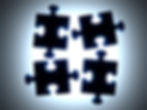
Calisthenics, or bodyweight exercises, used to bore me. Once I could do a sufficiently large set of push-ups, squats, or burpees I failed to be curious. The repetitions became mind-numbing. I lost count. I lost my sense of concern. I failed to see the value.
Fortunately, I cracked my ribs. This gave me a new perspective on my body. I found that inattentive movement, once seemingly innocuous things, like buckling a car seatbelt or sitting up out of bed, could cause significant discomfort.
I began to notice the subtle differences between a posture that caused pain and a posture that allowed pain-free movement. After months without intense exercise, I found two valuable nuggets of wisdom waiting for me:
1) Don't take for granted the things which have brought me to where I am, even if they are not currently pushing me forward. And...
2) There are subtleties in the simplest of movements, if I have the patience & attention to look for them.
The second has brought me to the concept of physical movements as a series of puzzles. Each subtle variation in myself or my environment changes both the feel and the outcome of the movement.
Environment...
A change in surface texture will cause me to adjust the torque I create at hip or shoulder joint; a change in air temperature will cause me to breathe differently; a change in the slope of the ground causes me to brace my abdomen differently.
As I pay attention, I adjust, and continue to find new differences in my environment.
Self...
As I fatigue physically, I find my attention to my form wandering away; as I breathe more rapidly, I find my mindset shifting away from that of a predator, becoming more like prey; as I feel more fear about the workout or uncertainty about my capability, I lose efficiency, lose fine motor control, lose sight of my long-term goals.
When I notice these things, the movement becomes a puzzle to work on. What aspect of form can I improve? How can I better match my breath to the movement? What attitude will improve my focus on what matters?
Each layer of analysis while performing a "simple" movement adds complexity that can push me towards excellence, or drop me towards inattention, apathy, and injury.
What difficulties or challenges can you find in your movements?
How will you work on those puzzles?